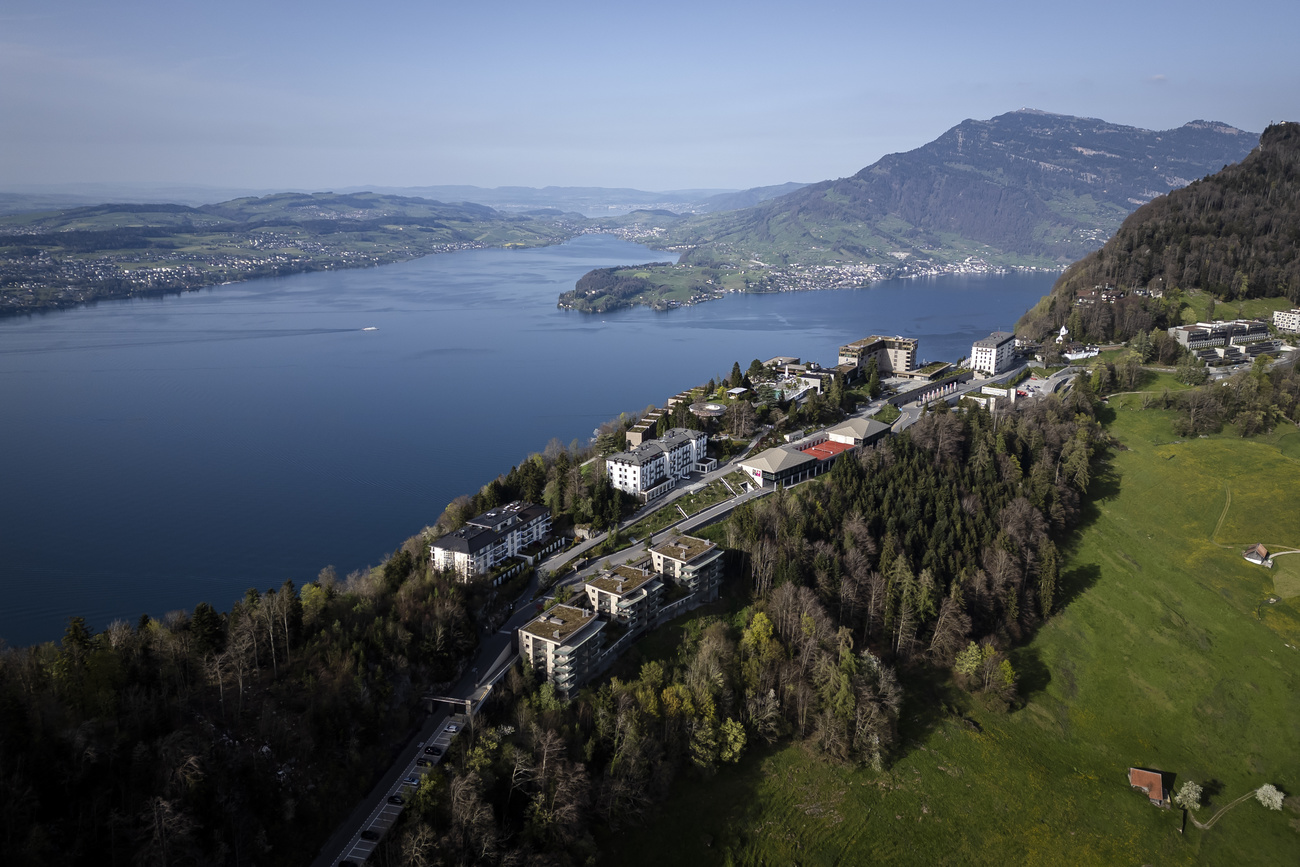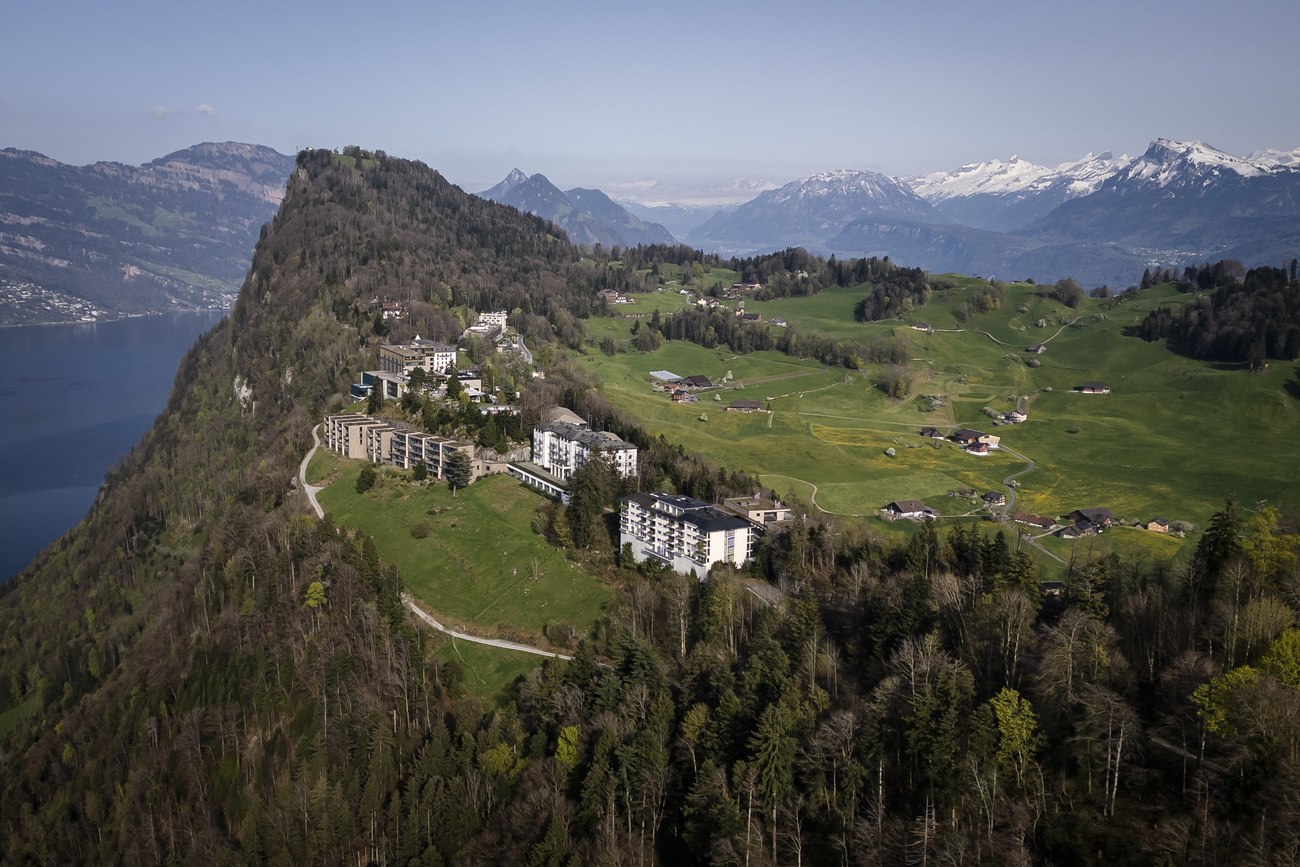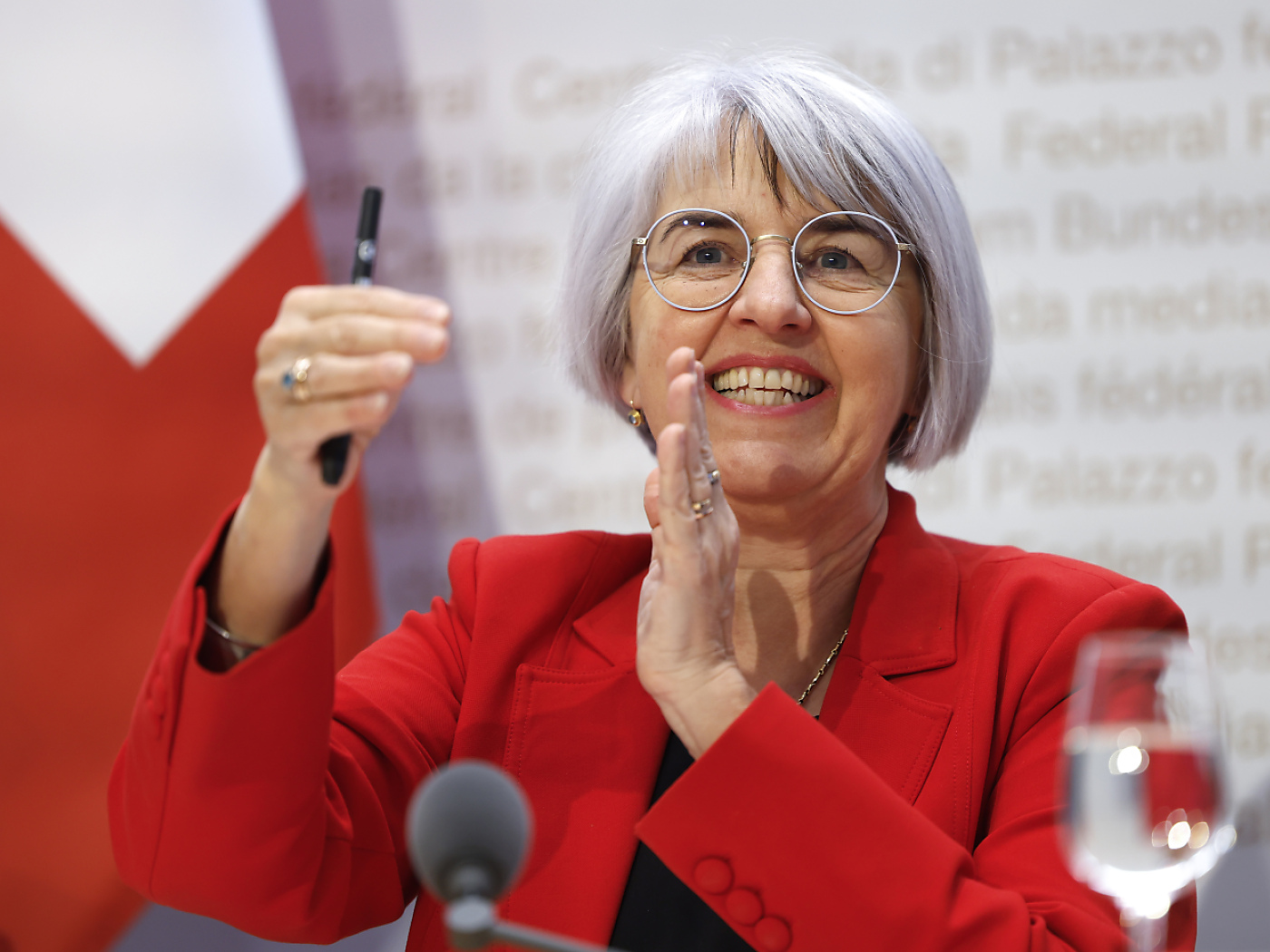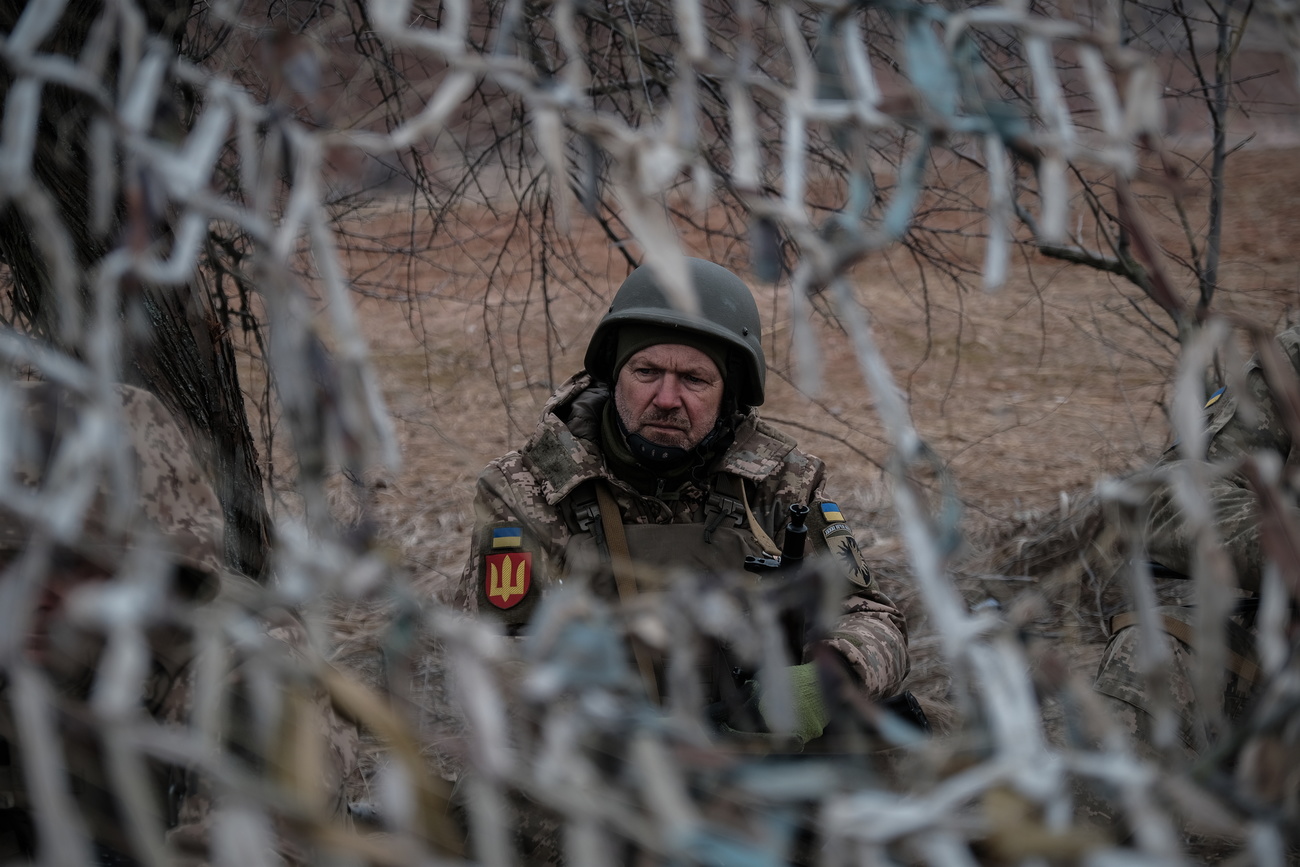Switzerland to host Ukraine peace conference in June

Switzerland says it will hold a high-level Ukraine peace conference in mid-June aimed at securing a “comprehensive, just and lasting peace”. US President Joe Biden will reportedly attend.
The announcement comes as Russia and China met in Beijing this week.
After agreeing in January to host a peace summit at the request of Ukrainian President Volodymyr Zelensky, Switzerland announced on Wednesday that an international conference is planned on June 15-16 at the five-star Bürgenstock hotel above Lake Lucerne in central Switzerland.
After an exploratory phase that involved lobbying and consulting with various states to explore options, the Swiss government said in a statement that “conditions are now in place for the conference to be able to initiate a peace process”.
The first step is to develop a “common understanding among the participating states with a view to achieving a comprehensive, just and lasting peace in Ukraine”, the Swiss government said.

More
All you need to know about Ukraine peace summit in Switzerland
During the initial exploratory phase, Switzerland said it held talks with G7 member states, the European Union and representatives of the so-called Global South, such as China, India, South Africa, Brazil, Ethiopia and Saudi Arabia.
“The conference aims to establish a forum for a high-level dialogue on ways to achieve a comprehensive, just and lasting peace for Ukraine in accordance with international law and the UN Charter. It aims to create a common understanding of a framework favourable to this objective and a concrete roadmap for Russia’s participation in the peace process.”
Starting the process
Swiss President Viola Amherd said there was no guarantee
the conference would be a success and that it would not
immediately result in a peace deal.
“The alternative would be to do nothing, and that would be
irresponsible for the stability of Europe and also for
Switzerland,” she told reporters in Bern.
She added: “We will not sign a peace plan at this
conference. We think there will be a second conference, but we
want to start the process with this one.”
Switzerland has been lobbyingExternal link other states to encourage the broadest possible coalition to participate.
Zelensky said on April 6: “We expect to have 80 to 100 countries… this is the number of countries, I believe, that will be able to at least try to force Russia to a fair peace.”
There is speculation surrounding the possible presence of US President Joe Biden. The Neue Zürcher Zeitung (NZZ) reportedExternal link on Tuesday, citing several reliable sources, that he would travel to Switzerland for the peace conference.
+ Countries urged to join Ukraine peace plan
The Swiss government made it clear early on that they considered the participation of the so-called BRICS states – Brazil, India, China and South Africa – to be crucial. Swiss Foreign Minister Ignazio Cassis travelled to China and India in February to promote the conference. Economics Minister Guy Parmelin also discussed the plans during a visit to Qatar. The Bürgenstock Resort belongs to a hotel group that is owned by the Qatari state.
Zelensky has previously outlined a ten-point peace plan that envisages the restoration of Ukraine’s territorial integrity, withdrawal of all Russian troops, protection of food and energy supplies, nuclear safety, and the release of all prisoners of war.
Russia’s position
Russia is unlikely to participate in the first round of discussions, Swiss Defence Minister Viola Amherd said in February.
Swiss Foreign Minister Ignazio Cassis confirmed this to reporters on Wednesday: “The first country that we spoke with, after Ukraine of course, was Russia, because a peace process cannot happen without Russia, even if it won’t be there for the first meeting.”
Moscow has said that the Ukraine peace conference is “pointless” and doomed to fail if it doesn’t take Russia’s interests into account. It has also said that the proposed meeting in Switzerland is also a ruse being used by the West to try to rally international support for Ukraine among the Global South.
+ How the war in Ukraine has changed Switzerland
Moscow has roundly rejected Zelensky’s peace formula. It says it is willing to enter talks about Ukraine but that these must respect Russia’s security interests and reflect what it calls the “new realities” on the ground, where its forces control just under a fifth of the country and Moscow has claimed four Ukrainian regions as its own.
What about China?
The big question mark is whether China will attend the Swiss conference, Bloomberg reportedExternal link on April 8.
Wang Shihting, China’s ambassador to Switzerland, told the NZZ in March that Beijing was “examining the possibility of taking part”.
Over a year ago, Beijing put forward its own 12-point paper that set out general principles for ending the war but did not get into specifics. It received a lukewarm reception at the time in both Russia and Ukraine, while the United States said China was presenting itself as a peacemaker but reflecting Russia’s “false narrative” and failing to condemn its invasion.
Russian Foreign Minister Sergei Lavrov has said that China’s peace plan is the most reasonable so far. On Tuesday, he met Chinese leader Xi Jinping in Beijing in a sign of mutual support and shared opposition to Western democracies amid Moscow’s invasion of Ukraine.
The two sides discussed the war in Ukraine and agreed that international meetings on Ukraine ignoring Moscow’s interests “are futile”, Lavrov told a press conference, according to Russian state news agency Tass.
“China supports the convening at an appropriate time of an international meeting that is recognised by both Russia and Ukraine, in which all parties can participate equally and discuss all peace solutions fairly,” Chinese Foreign Minister Wang Yi told reporters.

More
Switzerland plans to organise Ukraine peace summit
Sign up to get daily news from Switzerland, directly in your inbox.
This news story has been written and carefully fact-checked by an external editorial team. At SWI swissinfo.ch we select the most relevant news for an international audience and use automatic translation tools such as DeepL to translate it into English. Providing you with automatically translated news gives us the time to write more in-depth articles.
If you want to know more about how we work, have a look here, and if you have feedback on this news story please write to english@swissinfo.ch.

In compliance with the JTI standards
More: SWI swissinfo.ch certified by the Journalism Trust Initiative






















You can find an overview of ongoing debates with our journalists here . Please join us!
If you want to start a conversation about a topic raised in this article or want to report factual errors, email us at english@swissinfo.ch.